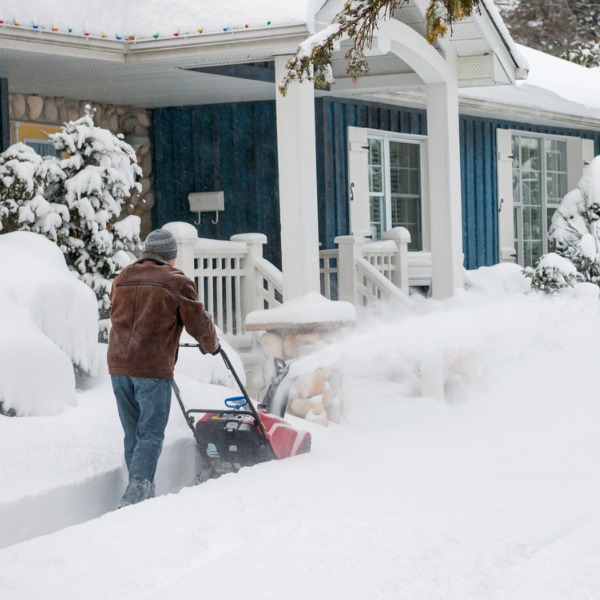Before the snow starts falling, it’s wise to make sure your snowblower is ready to do its job. After all, you don’t want your snowblower to be out of service when there’s a snow drift just outside your front door. After a long summer of being idle, you should give your snowblower a thorough inspection and perform basic maintenance.
Here’s how to make your snowblower winter ready:
#1 Fresh oil: Changing the oil at the beginning of the season is a simple thing you can do to make sure your snowblower performs at its best. Regular oil changes are another good way to extend the service life of your snowblower. Fresh oil helps remove the residue and gunk that the old oil captures. When changing oil, be sure to change the filter at the same time.
#2 Fresh fuel: Ideally, when the snow blowing season ended last spring, you either ran your fuel tank dry or added a fuel treatment product in the tank. In any case, the importance of fresh fuel can make a difference between sluggish and smooth performance.
#3 New starter: Hard starts are some of the most common frustrations with operating a snowblower. The operating season for snow blowing poses a challenge because starting the machine is an electrical process, and cold temperatures are not a friend to electrical functions. That’s why you want to make sure your electrical starter is in tiptop shape. If your starter is older and you’re experiencing sluggish starts, you might consider replacing the starter.
#4 New spark plugs: The spark plug is a seemingly simple part, but it can make a big difference in how easy your snowblower is to start and how smoothly it performs. Signs of failing spark plugs include rough engine performance such as misfiring or surging.
#5 New belts: Check the belts in your snowblower to make sure they are not showing signs of wear, cracking or stretching. Cold temperatures are stressful on belts. You want to make sure you replace them on your schedule rather than have them inconveniently break during a snowstorm.
Pre-season snowblower inspections are important
A preseason inspection of your snowblower can reduce chances of mid-winter breakdowns. When the snow is piling up, you don’t want your snowblower to be in failure mode. A bit of pre-season maintenance can potentially save you from problems down the line.


